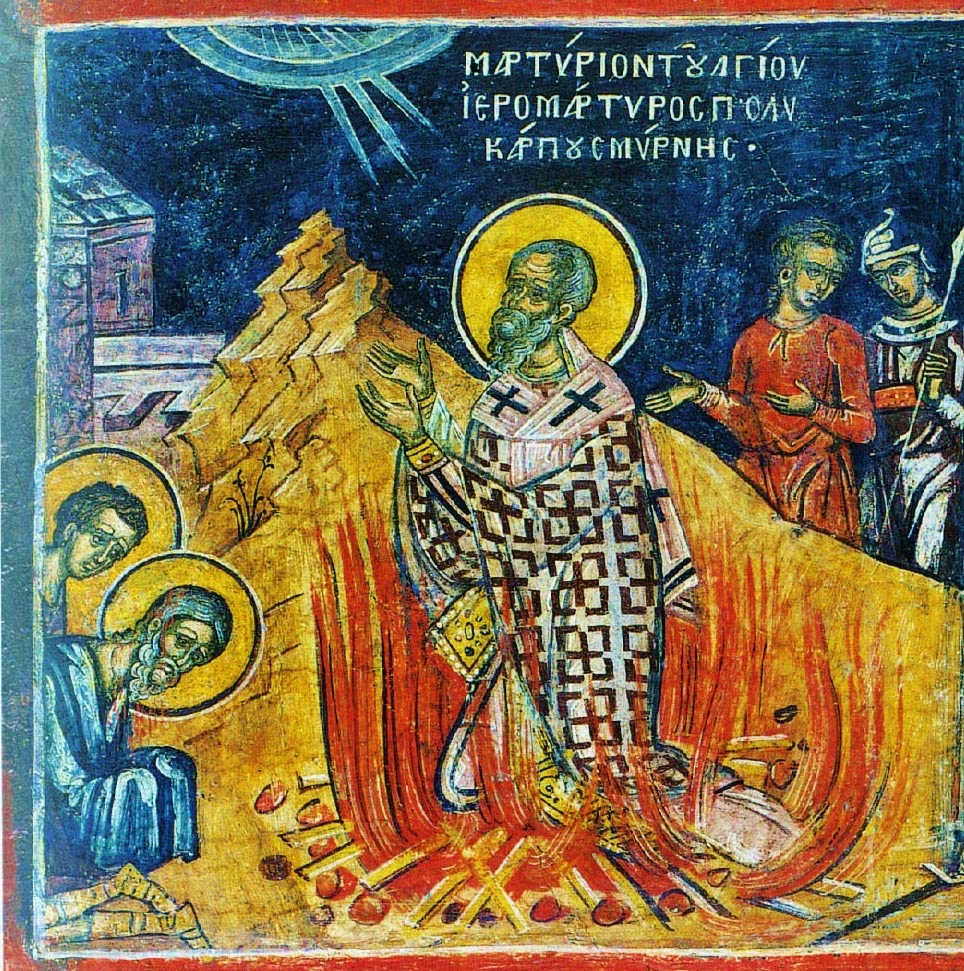Remembering St Polycarp today one is reminded of the nature of the persecution under the emperor Marcus Aurelius. In fact the persecution was not very severe. Christians were suspected of being disloyal to the state, so they were expected to show their loyalty by making an incense offering to the emperor–who was considered divine.
Many of the magistrates who had to enforce the edict were unhappy doing so and offered the Christians various compromises. One of them was that they could make their offering by proxy–someone else did it on their behalf or they could offer just one tiny grain of incense, and didn’t need to even put it on the fire, but just put it into the container of another person who was offering the incense.
Of course many of the faithful took the compromise.
St Polycarp, the Bishop of Smyrna, did not. Eighty six years of age, he refused to sacrifice to another god other than his Lord and King. At his trial he said about the temptation to deny Christ,
“Eighty and six years I have served Him, and He has done me no wrong. How then can I blaspheme my King and Savior? You threaten me with a fire that burns for a season, and after a little while is quenched; but you are ignorant of the fire of everlasting punishment that is prepared for the wicked.”
and at his martyrdom this was his prayer:
“I praise you for all things, I bless you, I glorify you through the eternal priest of heaven, Jesus Christ, your beloved Son. Through him be glory to you, together with him and the Holy Spirit, now and for ever. Amen.”
When he had said “Amen” and finished the prayer, the officials at the pyre lit it. But, when a great flame burst out, those of us privileged to see it witnessed a strange and wonderful thing. Indeed, we have been spared in order to tell the story to others. Like a ship’s sail swelling in the wind, the flame became as it were a dome encircling the martyr’s body. Surrounded by the fire, his body was like bread that is baked, or gold and silver white-hot in a furnace, not like flesh that has been burnt. So sweet a fragrance came to us that it was like that of burning incense or some other costly and sweet-smelling gum.







[…] Ph.D. France Debates How to Pay for Saving Crumbling Cathedrals – John Laurenson, Mrktplc St. Polycarp & the Grain of Incense – Fr. Dwight Longenecker New Book on Catholic Fundraising: Pray, Pray, Pray, Ask – […]